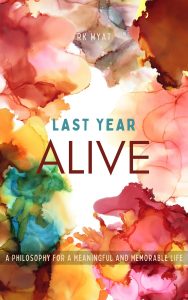So there's this thing called science. I think science by definition is interested in finding out how the world works - what kind of causal links there are between two things or events. Science isn't interested in morals or ethics and does not suggest any moral or ethical solutions to any situation - it simply attempts to find correlational and causational links between the occurrence of things or events.
So why, every time a scientific study is made public, the headlines scream with moral or ethical suggestions based on the study?
Well, one reason is that screaming moral or ethical suggestions sell exceptionally well. If the headline says, "study proves you sleep too little", you want to buy the paper and find out how much you should be sleeping - according to the study.
But the study won't tell you how much you should sleep. It might tell you what happened to the test subjects if they slept x or y hours. And even then it might not show any causation between the hours slept and the hypothesized consequence accurately, since there could be all kinds of different factors affecting the results.
And even then the study was not done on you. It was done on a set of other people, with other attributes - completely individual strangers whose characteristics cannot represent you adequately, ever.
Most people fall on the trap of thinking that the average of the test subjects will represent adequately the average person. But no one is an average person. So the test results do not represent anyone, except the individual results for the individual on whom the test was done.
Not to mention that science isn't exact. It changes all the time - they used to be sure that Earth was flat, weren't they?
So before you change your whole lifestyle based on a scientific study, remember that the study only attempts to explain the world, not suggest how many hours you should sleep or whether you should eat more fat or more bread. It may suggest that sleeping under 7 hours is related to increased stress, but it's not telling you to start sleeping more - it only reports the possible link.
The only reliable scientific study for you is the one done on you. And you're free to do any and every test you'd like to do to yourself. Sleep only 4 hours a night for a couple of months and see what happens. Eat nothing but butter for a week and see what happens. Snap your fingers every time you notice you're losing focus, and see what happens. You can literally test anything - and the longer the test period, the more reliable the results.
You will find out truly reliable and invaluable information about yourself and how your mind and body works - information that no general scientific study done on a set of other people can never generate.
RK

